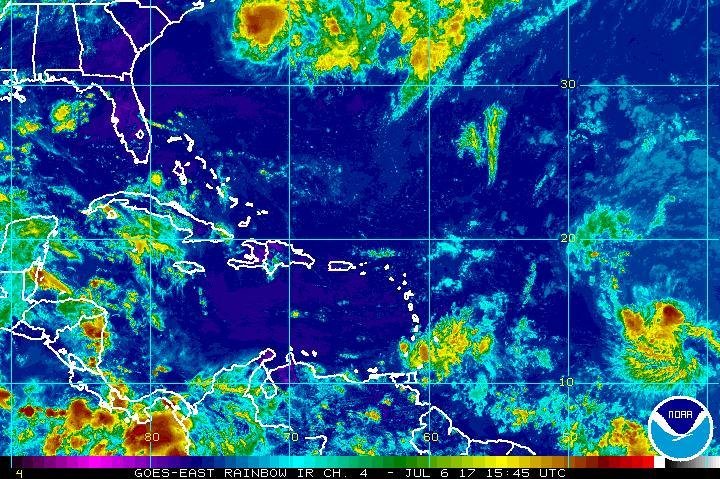ScienceRocks
Democrat all the way!
- Banned
- #1
A 370-Year History of Tropical Cyclones in the Lesser Antilles
--------------------------------------------------------------------------------
Reference
CO2 Science
--------------------------------------------------------------------------------
Reference
Chenoweth, M. and Divine, D. 2012. Tropical cyclones in the Lesser Antilles: descriptive statistics and historical variability in cyclone energy, 1638-2009. Climatic Change 113: 583-598.
Background
The authors say that in an earlier paper (Chenoweth and Divine, 2008) they "presented a 318-year record of tropical cyclone activity in the Lesser Antilles and determined that there has been no statistically significant change in the frequency of tropical cyclones (tropical storms and hurricanes) as well as tropical depressions over the entire length of the record." And they note that "the location of the Lesser Antilles partly within the 'Main Development Region' for Atlantic tropical cyclone formation makes this record our best source for historical variability of tropical cyclones in the tropical Atlantic in the past three centuries."
What was done
In their current paper, the two researchers examined the records employed in their earlier paper in somewhat more detail, determining "the maximum estimated wind speed for each tropical cyclone for each hurricane season to produce a seasonal value of the total cyclone energy of each storm along various transects that pass through the 61.5°W meridian." And somewhat analogous to accumulated cyclone energy (ACE), they calculated Lesser Antilles Cyclone Energy (LACE) along a fixed spatial domain (10-25°N, 61.5°W) at any time a tropical cyclone passed through it, after which they performed spectral and wavelet analysis on the LACE time series and tested it for statistical significance of trends.
What was learned
Chenoweth and Divine report that their record of tropical cyclone activity "reveals no trends in LACE in the best-sampled regions for the past 320 years," and that "even in the incompletely sampled region north of the Lesser Antilles there is no trend in either numbers or LACE," noting that these results are similar to those reported earlier by them (Chenoweth and Divine, 2008) on tropical cyclone counts. In addition, they indicate that LACE along the 61.5°W meridian is "highly correlated" with Atlantic-Basin-wide ACE.
What it means
In striking contrast to the claims of many climate alarmists that global warming will lead to both more frequent and more furious tropical cyclone activity, the work of Chenoweth and Divine would seem to suggest otherwise, especially in light of the fact that climate alarmists typically contend that 20th-century global warming was unprecedented over the past millennium or two.
CO2 Science
Last edited:



